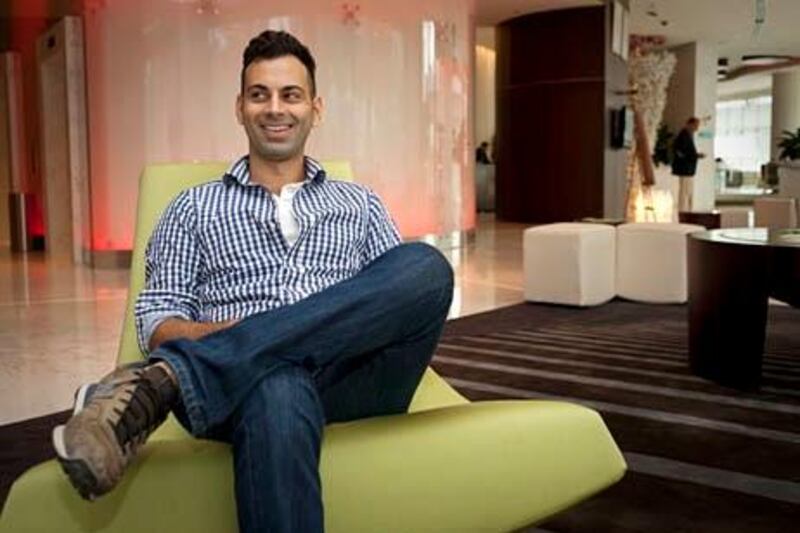David Haddad is well-dressed.
In dark blue jeans, a light blue shirt and a dark blazer, the 28-year-old Lebanese Canadian looks professional as well as casual at an after-work social occasion.
Owner of the innovative public relations enterprise PubliSeek, Mr Haddad thinks it is all part of business.
"People are dressing in different ways," Mr Haddad says. "It's partly a personal thing and partly based on what your business goals are."
While there are no figures to convey the impact of fashion on the profits of small businesses, some small to medium business (SME) owners swear by a fashionable dress sense and take it as seriously as proper accounting. It is crucial to look presentable and connect with people, some of them say.
A sense of fashion "is important for all businesses, but especially important for small businesses in which the 4 Ps of marketing - product, place, price and promotion - have a fifth P - people," says Stephanie Ost, owner of modelling agency and image consultancy SO Famous in Dubai.
"First impressions make a big difference and many people will subconsciously make judgments on a business's professionalism and ability based on this first encounter," the 27-year-old former model from Germany says.
Different cultures and businesses have different attitudes to fashion and looks. In California, Mr Haddad says, he once came across a technology entrepreneur who was meeting a potential investor for half a million dollars in flip-flops. "But looks are a significant factor here," he says of Dubai.
As an SME owner Mr Haddad socialises with potential clients and employers at art gallery openings and similar events at least once a week.
"If you are not dressed right, how will people decide who to speak with?" he asks. "You need that extra edge to stand out in the crowd."
That said looks also need to be combined with skills, knowledge and professionalism, he says.
Because "people are brands in themselves", Mr Haddad says, it is important to be well-groomed along with having a firm handshake.
While the "proper" fashion and dress sense is subjective, there are some red lines that SME owners should not cross, he says.
"For example, you do not wear a mini skirt to a black-tie event or a formal meeting and, equally, you do not wear evening make-up to a business lunch," Ms Ost says. "In business situations, it is important to look smart in well-fitting attire that flatters the body; make-up should be natural looking and behaviour should be professional and genuine."
Mr Haddad would dress casually for a day at the desk, but if he is meeting someone where first impression counts, he prefers wearing a jacket, not necessarily a tie, paired with dark leather shoes with jeans or chinos. He does not believe in investing in luxury items, but says he would typically spend US$100 (Dh367) for a shirt and up to $500 for a jacket.
There is a subtle difference between fashion and style, and professionals such as Ms Ost and Mr Haddad place more emphasis on the individual sense of style to leave a mark. While fashion is seasonal and fleeting, style is more indelible.
"SME owners should develop and recognise their own personal style, a style that they are comfortable with, which enhances their natural beauty and personality," Ms Ost says.
Among the tips for SME owners who want to improve their image is studying successful businesspeople and taking note of how they dress, speak and conduct themselves, she says.
"A well-groomed SME [owner] gives the impression of success and professionalism, both of which are vital in today's competitive business world", says Ms Ost, who indulges once in a while in the latest accessories and clothes.
Both business owners agree it is a good idea to invest in a dress or a suit, though not necessarily expensive ones.
"If you meet people, it has a positive return on investment," Mr Haddad says.





